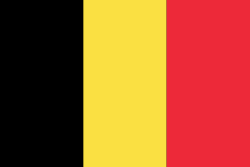For several years, the vanilla market has experienced significant upheavals. After a period of high demand and soaring prices, massive overproduction set in, causing a dramatic drop in prices. Madagascar, which supplies 70% of the world’s vanilla, produced more than needed. In 2023, the country exported 4,400 tons of vanilla, while global demand did not exceed 3,000 tons, resulting in a surplus stock crisis.
An undeniable drop in prices
Vanilla prices have fallen sharply in recent years. In 2015, a kilo of gourmet vanilla cost €700, but by 2024, the price dropped below €100. Older stocks are being sold for only €60 per kilo. This drastic price decrease hits producers hard, who now receive only 3,000 ariary (about $0.65) per kilo of green vanilla, compared to 50,000 ariary (about $11) in 2019.
Worrying economic and social consequences
The vanilla crisis threatens Madagascar’s local economy, where around 200,000 small farmers depend directly on this crop. The vanilla sector represents 7% of Madagascar’s GDP and 15% of its export revenue. Falling prices are pushing many producers to abandon vanilla cultivation and turn to more profitable products, such as cloves or cocoa. This economic and social instability could lead to rural migration and further weaken already vulnerable rural areas.
Towards necessary market regulation
To stabilize the sector and avoid future surpluses, several solutions are proposed:
- Implementation of production quotas: This measure would help regulate supply and limit surpluses.
- Development of local processing: Increasing value added before export could allow producers to benefit more from their harvest.
- Establishment of strict quality standards: Ensuring vanilla quality and combating fraudulent practices is essential to maintain the spice’s reputation.
- Creation of a vanilla exchange: Like coffee or cocoa, a vanilla exchange could provide more price transparency and market stability.
An uncertain future but opportunities for the vanilla sector
Despite the crisis that weakens producers and Madagascar’s economy, this situation can also be an opportunity to rethink the sector. Diversifying uses, developing quality labels, and innovating production processes can ensure a sustainable revival.
The main challenge is to protect producers while promoting responsible production that meets global market demands. Preserving vanilla, a symbol of refinement and craftsmanship, is essential to guarantee its longevity and international market position.
In this context, some local initiatives bring hope. In Madagascar, actors like Ilanga Nature highlight exceptional vanilla cultivated with respect for traditional methods. By working with committed producers, the brand offers natural, traceable, high-quality vanilla, contributing to the sustainable revival of the sector.
- by Fitia RAHARIMAMPIONONA



